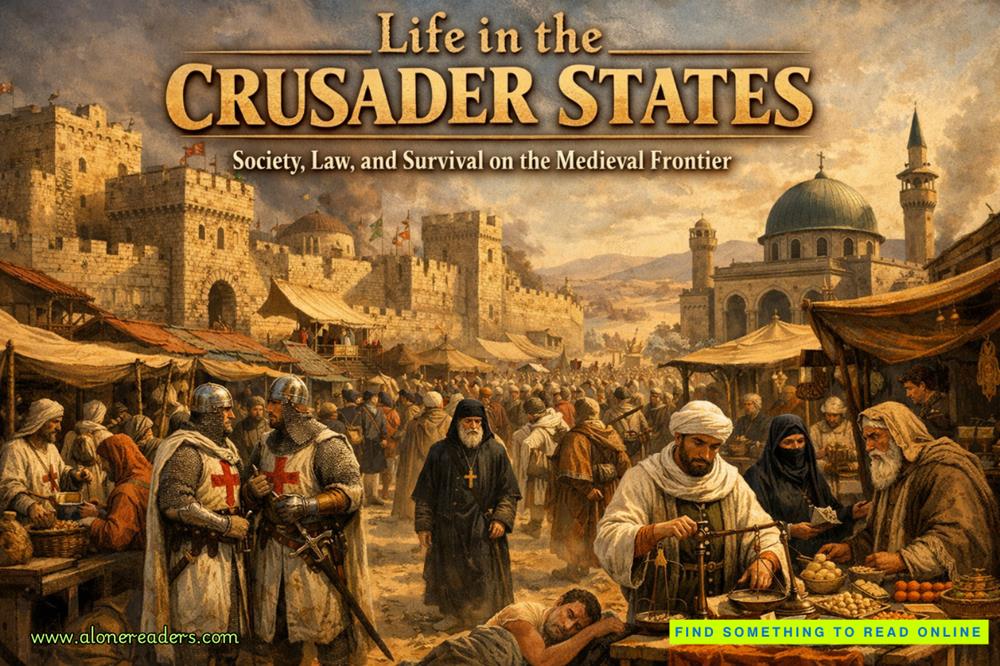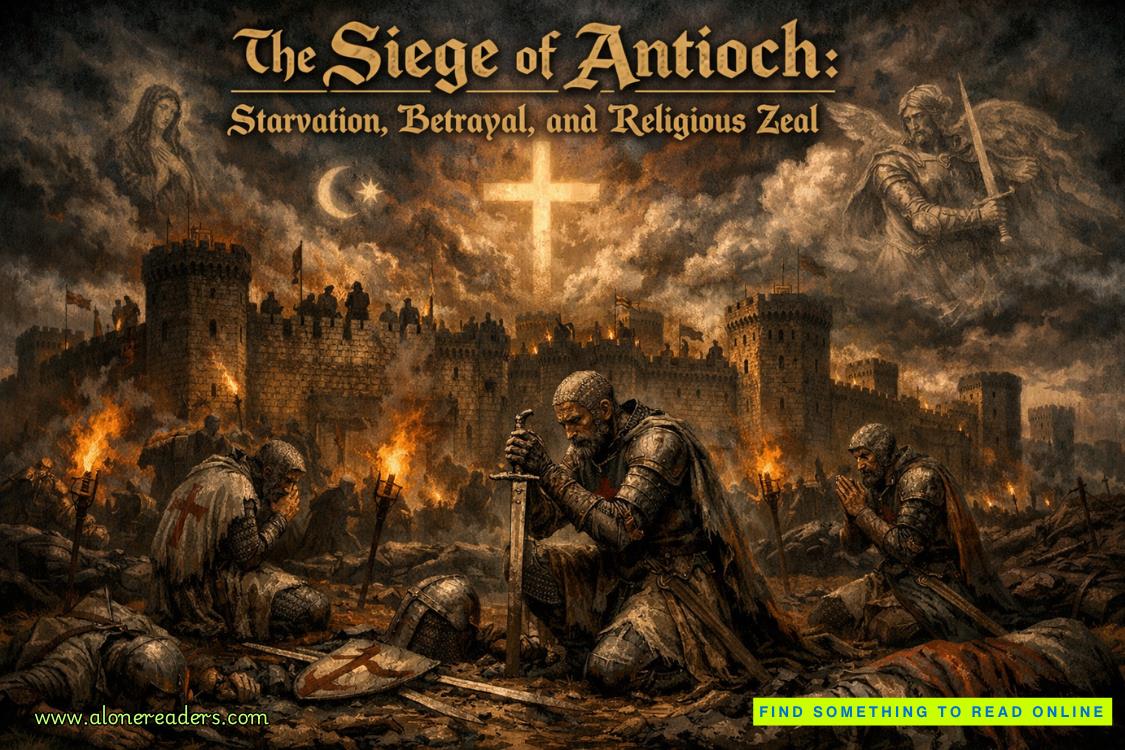“Maybe because he was a werewolf serial killer?” Finn said, pouring more wine into my glass.
“Sure. That’s one way of looking at it. But Murray had a different idea. She argued that Joan and Gilles de Rais were actually practitioners of an ancient religion and that Joan was designated as a sacrifice. Murray claims that because Joan was the chosen sacrificial victim, that Gilles couldn’t do anything other than stand by and let it happen. He was bound by a religious oath to uphold the sacrifice, even though he was supposed to be her friend and protector. But Joan most likely had accepted the sacrificial position. When you read the accounts, she seemed almost acquiescent to her own death. She was given several opportunities to receive a more lenient punishment, but she seemed almost resigned to dying.”
“So you found something that makes you think Murray’s theory might actually be correct?” Aspen asked.
“I did. A correspondence between the two that references, among other things, a magical recipe. Why would the marshal of France and a Christian prophet be discussing the specific ingredients in a witch’s ointment? Especially in the way that he seems to be doing. It’s as if he’s giving her instructions. It doesn’t make a lot of sense as it stands, but if we assume they were linked to this older religion, then the picture begins to grow clearer. But I need to understand more about that last ingredient before I can claim that it really is what I think it is.”
“You think this will prove that there were actual witches?” Lexi asked with a hint of sarcasm.
“No, but it would prove that there was an ancient religion that we have been suppressing and ignoring for a century.”
“Interesting,” Dorian said, tapping the rim of his glass. “And this cult, you said they worshiped Diana?”
“Murray argued that it was an outgrowth of an ancient cult that worshiped Diana and Janus, but their ultimate deity was a horned god.”
“Like… Pan?” asked Finn, suddenly serious.
“Yes, exactly. And this is where Murray’s complete conversion theory comes into play.”
“Complete conversion? I don’t know what that is,” said Finn, raising the now-empty bottle and pointing it at me like a gavel. “Explain yourself.”
“You see, there are countless records from the Middle Ages that show people all over Europe engaged in a religion that worshiped a horned god. There is no indication that the deity was malevolent, but as the church took over, they saw this worship as a threat that needed to be eradicated, so the horned god of the old religion became the ultimate enemy of the Christian church.”
“The devil,” whispered Lexi.
“Exactly. They cast Gilles de Rais as a monster, turned this god into the devil, and eventually claimed Joan of Arc as one of their saints.”
Silence hung over the group as if no one knew how to respond. And then with a twinkle in his eye, Finn raised his glass.
“To the great horned god!” he declared, and then he turned to me and winked. “If you can’t beat ’em, join ’em.”
Finn and Dorian moved me into the cabana when the sun was just starting to sag heavily in the cloud-thick sky. I really could have done the whole thing myself, but I got the sense they were jockeying to out-masculine each other. If I had been adifferent sort of person, I would have suspected they were competing for my attention. But typically I am not the kind of person for whom people compete. I’m more of a “steal her research and pass it off as your own” kind of person. So whatever was going on between them was squarely their own issue, but it was interesting to observe.
Once inside, they both lingered as if waiting for me to invite them to stay or to offer them drinks, but I didn’t have anything to offer, least of all hostess skills. I practically had to shoo them away, but once I did, I heaved a sigh of relief and got to work. Lexi had mentioned that they had moved Dr. Casimir’s things into a storage space, but honestly, it didn’t seem like it. The place looked as if she’d only just stepped out to run to the store.
Quickly I got to work searching for the relic, pulling out drawers stuffed with silk scarves and lacy lingerie, looking through armoires filled with elegant outfits and strappy heels. Whoever this person was, it was hard for me to believe she was a scientist. Was I so prejudiced againstthe beautiful peoplethat I assumed they were all inherently dumb? I blew hair out of my eyes and wiped sweat from my brow. Yeah, if I could have pulled off that lingerie, I probably would have occupied myself with something much more fabulous than slogging through archives and writing revenge dissertations.
As a last-ditch effort, I got down on my hands and knees and looked under the bed, but there was nothing there, not even a dust bunny. Standing, I wiped my hands on my jeans and then headed out into the little patio garden. It was lovely out there, all mossy stone and creeping vines. Around the side of the garden, I noticed a flight of stone steps leading down into the dark. A basement would be the perfect place to hide the relic. With a hint of cautious excitement, I took the steps gingerly, careful not to slip on the moss, andwhen I reached the bottom, I found a metal gate. When I tried the handle, though, I found it was locked. Typically, I wouldn’t violate someone else’s locked door, but these were special circumstances. It might be inside. I reached through the bars and tried the handle from the inside and the door gave way. I wasn’t sure why I’d tried that, but it did the trick.
I reached for the light switch and flipped it, illuminating a sight that took my breath away. Colored glass bottles hung from nearly every square inch of the ceiling. At first I thought they were strung haphazardly, but then I realized they were arranged in a series of concentric circles.
“What the hell?” I whispered to myself.
There had to be hundreds of them. It looked almost mathematical, calculated, as if a necessary step in a science experiment that, when viewed out of context, resembled pure madness. Deeply unsettled, I headed back out the door and up the stairs. I had no idea what I’d just found, but it was vaguely unnerving. I went back inside and tried to call Paloma, but again there was no answer.
Contacting Paloma was something I tried to do every few days, but she never called me back. This silence from her was going on too long. Lately I had been reconsidering her strange behavior before she left for California. It had seemed so over-the-top that I was beginning to wonder if it had actually been a prank of sorts. Perhaps she was punishing me for something, trying to make me worry about her. And Iwasconcerned about her. I couldn’t fathom what I might have done to upset her so much that she would completely ignore me. I just hoped she was okay.
Later that afternoon when I went down to the scriptorium, I retrieved the large codex that had so enchanted me earlier and sat down at the table to examine it. This time, I moved quickly through the sumptuous illustrations and meticulous diagramsthat comprised the bestiary section and spent some time with the rest of the contents. I turned the pages slowly, examining each rendering, each figure, until I came upon something I must have missed on my first pass. It was a triptych that took up an entire page. The first image depicted a woman dressed in blue, with a red cape and an indigo veil. She stood outside among rolling green hills, and she pointed to a strange tableau. To her left stood a pot from which smoke billowed. This smoke seemed to rise up before splitting in two. It encircled a cluster of yellow flowers before entering a second chalice. Or was it the other way around? Was the smoke pouring out of the top chalice? And for that matter, was it smoke? Or could it be steam?
The next panel showed this same woman drinking from a chalice, and the final one showed her sitting blindfolded on a pillar. Taken together, they called to mind the Oracle of Delphi, but something seemed off about it, unsettling.
In ancient Greece, female prophets called sibyls or oracles were thought to have the ability to speak directly with the gods or goddesses of whatever temple they oversaw. The Oracle of Delphi was called the Pythia, and she was considered to be the most potent of all the oracles. Encountering a depiction of her in an ancient manuscript wasn’t that odd in itself, but something wasn’t quite right about it. Something stirred in my subconscious, some memory of who this was, but it was just out of reach. I closed the book and pushed it aside. It was time to focus.
That evening when I got to dinner, Dorian was already seated, and small plates of food had been set out. The others weren’t there yet, though their places had been set.
“How was your afternoon?” Dorian asked genially.
“Good. My work gave me an appetite.”















